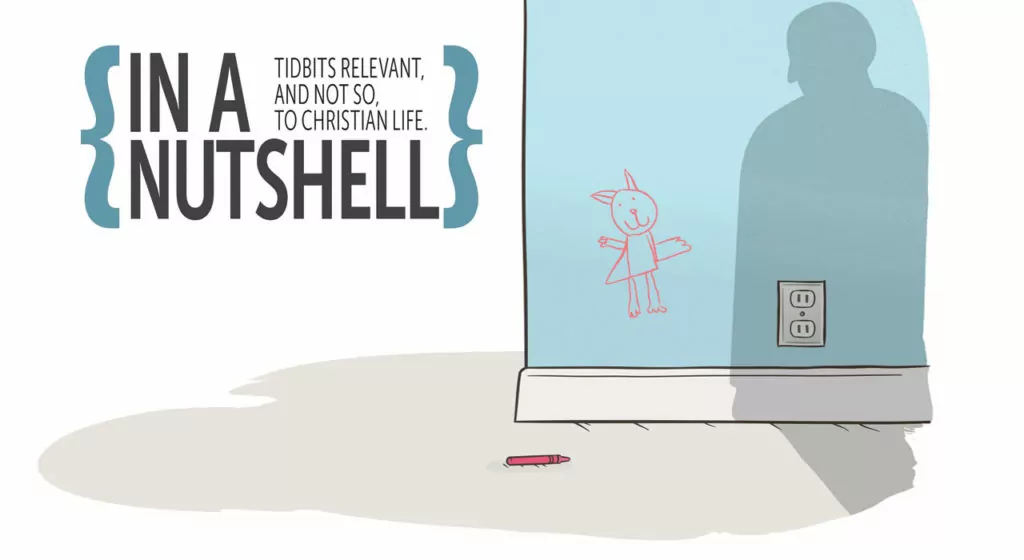Are we only after better-behaved pagans?
Christians have made a habit of advocating for Christians positions without advocating for them as Christian positions. So we raise practical objections and stand against transgenderism because it just isn’t safe allowing men into women’s washrooms. We oppose euthanasia by arguing it’ll put pressure on the aged who don’t want to be a burden to their families. We fight promiscuity because it leads to STDs. And we argue against abortion by highlighting how it might be linked to an increase in breast cancer.
It’s true that were the world to live by God’s standards for only entirely secular reasons, their lives would likely be more enjoyable. But, as C.S. Lewis noted in Mere Christianity, that might also be accomplished if they followed any of the great teachers.
“It is quite true that if we took Christ’s advice we should soon be living in a happier world. You need not even go as far as Christ. If we did all that Plato or Aristotle or Confucius told us, we should get on a great deal better than we do. And so what? We never have followed the advice of the great teachers. Why are we likely to begin now? Why are we more likely to follow Christ than any of the others? Because He is the best moral teacher? But that makes it even less likely that we shall follow Him. If we cannot take the elementary lessons, is it likely we are going to take the most advanced one? If Christianity only means one more bit of good advice, then Christianity is of no importance. There has been no lack of good advice for the last four thousand years. A bit more makes no difference.“
If we’re only presenting “good advice” the world is as likely to reject it as any other advice. So what if promiscuity brings with it an increased chance of STDs, or abortion might result in breast cancer? We don’t know if we even have a tomorrow. So as Paul put in 1 Cor. 15:29-32, if there is no God – if we live only for today – then “let us eat and drink, for tomorrow we die.”
So often we are looking for the savvy argument, the magic bullet that will sway even the unbeliever to side with us. But the truth is, we need to look for the God-glorifying argument. That is why we were put on this earth: not to convince pagans to be better behaved, but to glorify God. And we might just find that God has so arranged things that the God-glorifying truth is often also the savvy compelling one.
Chesterton on war
G.K. Chesterton was 40 when “the Great War” began, and he died three years after Hitler’s rise to power. So even though he didn’t see WWII, this journalist and Christian apologist lived through the lead up to both World Wars, and understandably has some pronounced views on the subject of war.
- “War is not the ‘best way of settling differences;’ it is the only way of preventing their being settled for you.”
- “The true soldier fights not because he hates what is in front of him, but because he loves what is behind him.”
- “The only defensible war is a war of defense.”
What kind of impact will you have?
In the US, federal elections happen every two years, and in Canada too, whether it is federal, provincial or municipal, there always seems to be an election just around the corner. A lot of elections going on means there are a lot of opportunities for Christians to speak God’s truth in this sphere and have an impact. How can we have an impact? Occasional Reformed Perspective contributor Tim Bloedow thinks one of the best ways would be by imitating Dr. Glenn Martin. This professor was convinced that every serious Christian should try to influence the vote of at least 100 people. He himself wasn’t satisfied unless he attempted to influence at least 1,000 and the way he went about it was by writing these 1,000 people to tell them how they should vote, and why. So, with the ever-present next election just around the corner, what are some ways you can present a Christian witness in the political sphere?
4 for video gamers to consider
Phillip Telfer has been speaking about media and teens for a couple decades now, and in his latest booklet he offers a number of “considerations” for video gamers, and their parents, to, well, consider. Four of them are:
- TIME-STEWARDSHIP: Video games can be a huge time sink. Yet time is one of God’s gifts, one of the talents, we are supposed to invest wisely so video gamers should make a deliberate decision about how much time they are going to spend – going to invest – and then stick to it.
- ADDICTIVE: Video games can be habit-forming and addictive. In moderation some games might be just fine, but we need to understand that these games’ programmers aren’t trying to promote moderation. So, recognizing this, what can we do to prevent or counter video games’ addictive nature?
- ESCAPISM: Video games foster escapism. It is easier to play video games with people half a world away than to deal with our own family, or to go out and make friends.
- FALSE ACCOMPLISHMENT: Video games often give a false sense of accomplishment. The stereotype of a gamer is the 30-something-year-old living in their mom’s basement. But it doesn’t need to go to that extreme to be undermining real-world ambitions.
Telfer’s 29-page booklet, 7 Considerations in the age of video games, can be downloaded for free here.
Why are great quotes great?
What makes a quote memorable? One key is a clever turn of a phrase, as in Yogi Berra’s “It ain’t over till it’s over” or Alexander Pope’s “to err is human; to forgive, divine.” But the very best quotes have another essential ingredient: wisdom. And it’s no coincidence, then, that the best quotes have parallels in Scripture, or echo biblical principles.
- “The cure for crime is not the electric chair but the high chair.” – J. Edgar Hoover
- “Train up a child in the way he should go, and when he is old he will not depart from it.” – Prov. 22:6
The FBI Director makes the same point as King Solomon: parents, for good or for ill, set their children out on a course that, in general, they will follow for the rest of their lives.
- “With great power comes great responsibility.” – Spiderman’s Uncle Ben
- “To whomever much is given, of him will much be required; and to whom much was entrusted, of him more will be asked.” – Luke 12:48
Uncle Ben’s statement might be the most famous in superhero movie history, and the reason it rings true is because it echoes what Christ says in Luke 12:48, and a point He makes in the Parable of the Talents (Matthew 25:14-30).
- “You must be the change you wish to see in the world.” – Gandhi
- “Do unto others as you would like them to do unto you.” – Matt. 7:12
We all know how others should behave, and, in fact, prefer to preach rather than practice. But as Jordan Peterson put it last year: “If you can’t even clean up your own room, who… are you to give advice to the world?” In Mathew 7 Christ confronts this hypocritical tendency a few different ways, urging us to think first of the beam in our own eye, rather than the mote in our neighbor’s (Matt. 7:3-5), and then calling on us to do to others as we would want done to us. We are responsible first and foremost for our own behavior.
Some good news on the homefront
In his short review of Glenn Stanton’s The Myth of the Dying Church, Marvin Olasky shares some big news. While we regularly hear about declining church attendance across the US (and the rest of the Western world), Stanton pointed to polling that shows there’s a decided upside too. From 2007-2014 there has been an increase in the percentage of Americans who:
- “say their faith is ‘very important to them’”
- “identify as Christian and say they pray daily, beyond a church service”
- “say they read the Bible at least once a week”
- “say they attend a small group for prayer, Bible study, or other religious education”
In addition, over this same period, there has been an increase among regular church attendees, of those “who say they speak about their faith with others.”
The Devil wants us to despair and forget that Christ has already won. Let’s not blind ourselves to the work God is doing even here in the supposedly “post-Christian” West.
Gotta serve somebody
“So many political and theological liberals need a cause to substitute for their moral obtuseness on such issues as abortion and homosexual behavior. They’ve found it in the worship of animals and plants. “ – Cal Thomas












